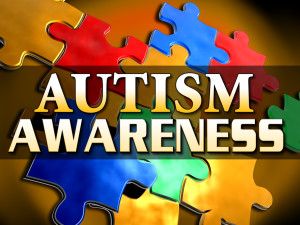 Awareness
Awareness
Autism awareness month is here. As I look around at schools or in neighborhoods, I see “Support Autism” signs and homes with blue lights on them. The question I ask myself is, once the month is over what’s next for autism? I do appreciate the month where autism is placed on the forefront of everyone’s mind as a reminder of such a crazy and unexplained epidemic that has taken hold of so many children and families lives. However, I am not one that celebrates the month because I live with it 365 days a year.
Family
My son Jaylon, is a walking billboard of what Autism is. He was diagnosed eleven years ago at age 3 and it has been a roller coaster ever since. I have watched him struggle to form a word to now talking back to me when I asked him to do something. Although I hate when he talks back, I love the fact that he can…
Getting Older
Now that he is a teenager, I find myself wondering about his future. What will he become as an adult and how can I get him to that goal. After years of searching, I still struggle with finding the right school setting that is able and willing to put in the time to teach him. Jaylon is so smart but it takes the right person to tap into his mind and help him learn. Although he is still developmentally behind, he has made tremendous progress that has truly inspired and amazed me. He is my inspiration and has taught me what true love is…
Help is Here
To those that are raising a child/children with special needs, I understand your heartache, pain, love and commitment to your child/children. We have no clue as to why GOD chose us to be the caregivers to his special children. No matter how hard it gets both emotionally and financially, please know that because we were chosen to care of GOD’s child/children, GOD will always take care of and provide for us. If there’s anyway I can assist you and your family, please give me a call. We are all in this together….

This is what Autism means to me….
Dione Simmons, MA, LPC
Transitions Counseling offers flexible scheduling hours to meet most client needs and budget.
Contact us today at 817-680-9218
 I believe we have an innate sense of fairness, even from a young age. Little Johnny says, “Tommy hit me and he didn’t get in trouble, that’s not fair mommy”. As adults that innate sense of fairness doesn’t simply go away Just think of all the time at work when you got passed over for a promotion and someone less deserving got it. Or when you are at the grocery store behind someone with a cart overloaded with groceries and several coupons even though you are clearly in the express: “15 items or less” lane. During these times there is a voice screaming in our heads, “THIS IS NOT FAIR!” However, if confronted almost all adults will concede that life is not fair, we realize the concept in our heads but it does not translate to our hearts. Even as adults, we still deep down believe that life and the situations in our lives should be fair. This sense of fairness continues and in our hearts; (my mental picture of it is similar to the scales of justice) it must be balanced. With that idea in mind, if I believe on one side of the scales that I’m worthless and I don’t deserve anything, that I am lacking somehow, or I am broken and don’t deserve good things; then I’m going to balance that by treating myself and allowing myself to be treated in a way that correlates with that. Conversely, if I believe that I am deserving of love and am valuable I will treat myself and insist others treat me accordingly. We become very protective when someone treats our loved ones badly. If you don’t believe me just insult a man’s wife in front of him or mistreat a child in front of their mother. They won’t stand for it. They will demand you treat their loved ones with respect and they may even get a bit hostile in their demands for this respect. Why don’t we (this is the plural You here) deserve the same consideration? How do we begin to treat ourselves better? I mean listen to the voice inside your head, what does it say? “I am not good enough”, “I deserve to suffer”, “I am worthless”, “My opinion doesn’t matter”. How do we make others treat us better? First we have to truly believe that we really do deserve better or it will never happen. What do you think? Are you as a human being any less deserving than any other human being? If you would like help working through feelings of doubt or just dealing with a challenging life situation, give us a call at Transitions.
I believe we have an innate sense of fairness, even from a young age. Little Johnny says, “Tommy hit me and he didn’t get in trouble, that’s not fair mommy”. As adults that innate sense of fairness doesn’t simply go away Just think of all the time at work when you got passed over for a promotion and someone less deserving got it. Or when you are at the grocery store behind someone with a cart overloaded with groceries and several coupons even though you are clearly in the express: “15 items or less” lane. During these times there is a voice screaming in our heads, “THIS IS NOT FAIR!” However, if confronted almost all adults will concede that life is not fair, we realize the concept in our heads but it does not translate to our hearts. Even as adults, we still deep down believe that life and the situations in our lives should be fair. This sense of fairness continues and in our hearts; (my mental picture of it is similar to the scales of justice) it must be balanced. With that idea in mind, if I believe on one side of the scales that I’m worthless and I don’t deserve anything, that I am lacking somehow, or I am broken and don’t deserve good things; then I’m going to balance that by treating myself and allowing myself to be treated in a way that correlates with that. Conversely, if I believe that I am deserving of love and am valuable I will treat myself and insist others treat me accordingly. We become very protective when someone treats our loved ones badly. If you don’t believe me just insult a man’s wife in front of him or mistreat a child in front of their mother. They won’t stand for it. They will demand you treat their loved ones with respect and they may even get a bit hostile in their demands for this respect. Why don’t we (this is the plural You here) deserve the same consideration? How do we begin to treat ourselves better? I mean listen to the voice inside your head, what does it say? “I am not good enough”, “I deserve to suffer”, “I am worthless”, “My opinion doesn’t matter”. How do we make others treat us better? First we have to truly believe that we really do deserve better or it will never happen. What do you think? Are you as a human being any less deserving than any other human being? If you would like help working through feelings of doubt or just dealing with a challenging life situation, give us a call at Transitions. Every nine seconds in the United States a woman is assaulted or beaten. In the United States, an average of 20 people are physically abused by intimate partners every minute. This equates to more than 10 million abuse victims annually (NCADV 2015). October is Domestic Violence (DV) Awareness Month. For victims of domestic violence this awareness is not just a once month out of the year occurrence. It is an hour by hour, day by day, week by week & month by month occurrence. For some, domestic violence is the “norm” of life. Their lives have never been void of some type of abuse. Many victims of DV are in a cycle of generational physical, emotional, verbal or sexual abuse. The great news is this cycle can be broken with assistance from domestic violence organizations, counseling, family, friends & other resources. With help, a person can transition from domestic violence victim to a survivor of domestic violence.
Every nine seconds in the United States a woman is assaulted or beaten. In the United States, an average of 20 people are physically abused by intimate partners every minute. This equates to more than 10 million abuse victims annually (NCADV 2015). October is Domestic Violence (DV) Awareness Month. For victims of domestic violence this awareness is not just a once month out of the year occurrence. It is an hour by hour, day by day, week by week & month by month occurrence. For some, domestic violence is the “norm” of life. Their lives have never been void of some type of abuse. Many victims of DV are in a cycle of generational physical, emotional, verbal or sexual abuse. The great news is this cycle can be broken with assistance from domestic violence organizations, counseling, family, friends & other resources. With help, a person can transition from domestic violence victim to a survivor of domestic violence.

